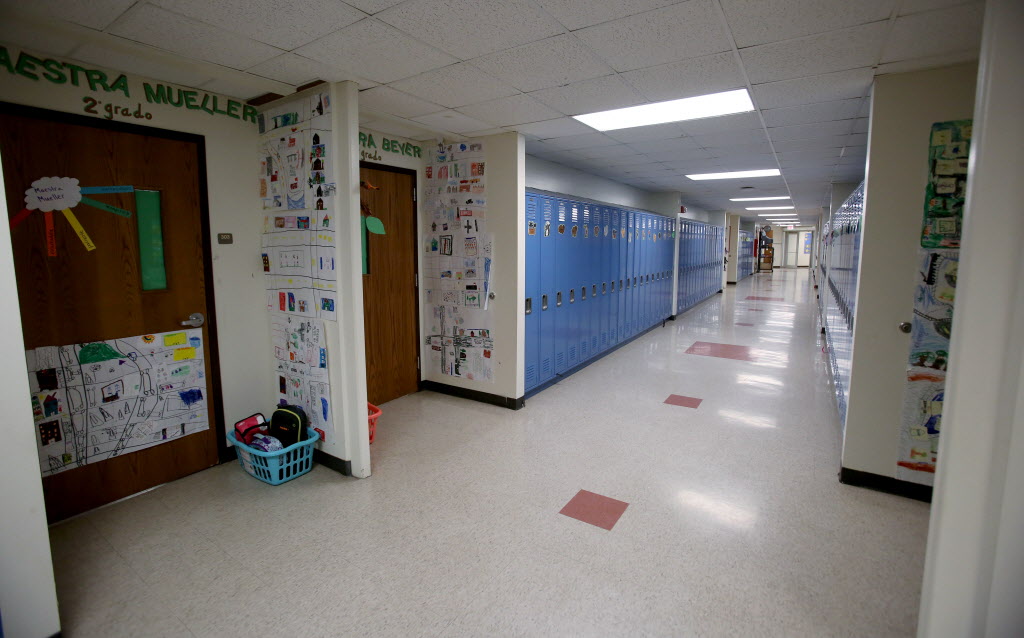Both state superintendent candidates said they want to reopen schools to in-person instruction as soon as possible now that teachers are getting vaccinated.
Pecatonica School District Superintendent Jill Underly and former Brown Deer School District Superintendent Deborah Kerr told a Disability Vote Coalition virtual forum last night the addition of teachers to the vaccination lists and increased availability of vaccines means schools can safely reopen soon.
Kerr said she wants to reopen schools across the state immediately because parents are fatigued and frustrated with having to juggle childcare and their jobs.
“And so, with vaccinations coming through with teachers, we can make sure this can happen, especially for all of our children with disabilities, because our parents need this support,” Kerr said.
>> WisPolitics is now on the State Affairs network. Get custom keyword notifications, bill tracking and all WisPolitics content. Get the app or access via desktop.
Underly added that she is more concerned about kids’ social and emotional health, but those kids will also need to catch up on learning opportunities they might have missed out on during the pandemic.
“Everyone wants their schools open, the kids do especially,” Underly said.
The election is April 6.
They also both endorsed a 90 percent state reimbursement rate for special education classes.
The state is currently at 30 percent, and Gov. Tony Evers’ budget proposes increasing that to 45 percent in the first year and 50 percent in the second.
Kerr and Underly said special education classes have suffered in school districts across the state as Wisconsin has offered to fund too little of those costly classes. They said that funding is needed to ensure students with disabilities can get jobs after graduation and receive the same high-quality education as their peers.
Kerr said she would strive for 90 percent reimbursement for special education classes to help schools provide robust special education programs alongside strong standard curriculums.
“Their needs are more unique and complex than ever due to the pandemic [and] due to the situation that’s going on in society,” Kerr said.
She added the funding increase would ensure schools could provide resources for students to deal with trauma and ensure they have food, housing and their living requirements are “adequate.”
Underly agreed, saying a 90 percent reimbursement would be ideal because it would also allow districts to save money for other priorities such as reducing class sizes, adding extracurricular activities and improving buildings.
“I would certainly advocate and continue to work with our Legislature and our families to fully understand the cost of special education,” she said.
Underly added that funding lag has been around for at least 20 years and her school district transfers at least half a million dollars per year to fund their special education classes.
They also called for reducing the use of seclusion and limiting the use of restraints in schools to address behavioral issues.
The two said using data to make decisions on how to limit those practices is the end goal because they are not as productive towards educating students with special needs compared to less damaging ones. However, they said those practices are necessary in certain circumstances.
“I do not believe in seclusion and restraint unless it’s absolutely necessary,” Kerr said.
However, she said schools need to work toward helping those students make better decisions and “handle themselves” better so seclusion and restraint don’t need to be used as often.
Underly said restraint and seclusion should only be used when “absolutely most needed and when a child is in danger of harming themselves or others.”
“Every effort should be made to prevent the need for use of restraint and for the use of seclusions,” Underly said.
She said understanding the needs of students with disabilities, improving early childhood intervention programs and implementing better coping mechanisms in schools will help reach that goal.
The candidates also said they would work to make sure students with disabilities are informed about their voting rights in the future.
The two said ensuring students with disabilities know their voting rights, including the right to request accommodations, is critical.
Underly said it is also important to make sure election clerks are able to visit schools with students with disabilities so they can register because some of those students are of voting age.
Kerr stressed the importance, adding: “We want everyone to be civically engaged, and that is critical to our overall success as a community and society.”
Watch the forum at WisconsinEye (registration required): https://wiseye.org/2021/03/04/wisconsin-disability-vote-coalition-state-superintendent-of-public-instruction-candidate-forum/


